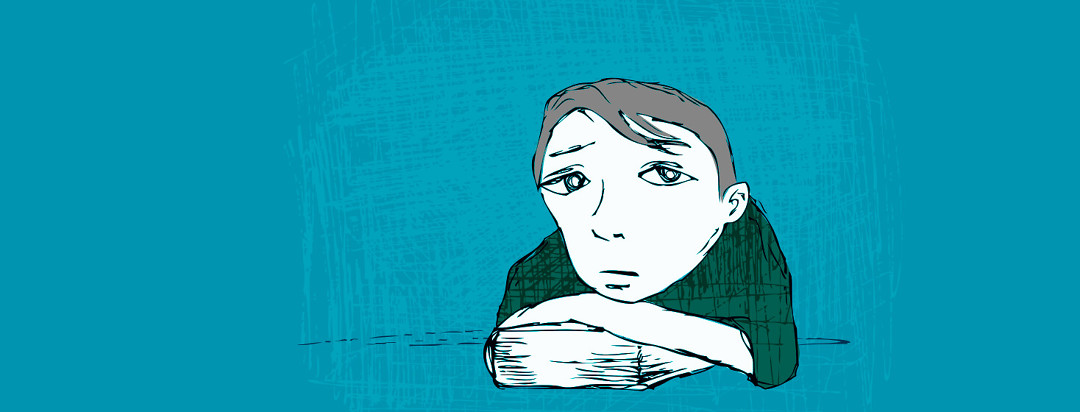You’re Not Dying and You Don’t Have Cancer. Why Are You So Sad?
Those of us on the MacularDegeneration.net team were recently given a wonderful opportunity to travel for a conference. Our keynote speaker was a woman who recently lost a pregnancy, lost her father, and lost her husband all within a few months. She spoke to us about grief. Her name is Nora McInerny and boy did she give me some validation for the feelings I often have about my life with macular degeneration.
Grief and macular degeneration
You may be wondering why patient advocates for diseases like macular degeneration would need to hear a presentation on grief. I think, generally, when thinking of grief many people automatically think of the grief that accompanies death. This makes total sense because what a deep and everlasting grief that is. There isn’t much worse than that type of loss and grief.
Loss comes in many forms
Plus, we can all empathize with death as a form of loss because we all have (or will) experience it in our lifetime. Nora even boldly stated in her presentation the reminder that, “Everyone we love has a one hundred percent chance of dying.” We don’t all experience the same illnesses or hardships other than death, so death is something we can all recognize as a form of loss and grief. But, grief is not just the loss of a loved one.
Symptoms of grief
That anger we felt when first diagnosed? The confusion about what to do? That sadness and loneliness that accompanied finding out just how bad our eyes were? The very, very deep sense of loss that hangs over our heads still... even years after diagnosis? Having a difficult time finding joy when there’s so much ‘other stuff’ to be joyful about?
These are all symptoms of grief, Friends. These feelings are more than normal, and they are more than okay.
People don’t (usually) mean to hurt each other
I don’t know about you, but I’ve had my feelings hurt pretty badly by people that I love... simply for the fact that they just don’t understand the physical and mental struggles that accompany macular degeneration. It is often an invisible disease after all.
"At least it's not cancer..."
Trust me, I have avoided many macular degeneration conversations at all costs because... well, they’ve hurt my feelings. I have had life-long friends say things to me like, “It could be worse, you aren’t dying.” Or, “Why are you so sad, you seem like you can still see?” I’ve even had one, very shocking, “It’s better than something like cancer.”
It's hard for others to understand
Over the years I’ve learned how to kind-of keep my feelings in check when this occurs because honestly, how can I expect someone who isn’t experiencing what I’m experiencing to understand it?
Sigh.
Most of us aren’t dying... well, not right now... we’re aging, but we aren’t dying. So, then what are we grieving?
Grieving life before macular degeneration
We’re grieving the lives we thought we’d have before macular degeneration. We, as humans, try to control everything about our lives, don’t we? We (think) we have everything all planned out. But the truth is, we don’t. Life is predictably unpredictable. If we can count on anything in life, it’s that life will change. Things never stay the same... good times, bad times, okay times... they will all change.
Something I’ve learned along my health journey is that we all have, have had, or will have something going on that is difficult. If you’re lucky, it’s only one or two somethings at a time. If it isn’t macular degeneration, it’s bound to be something else.
"Stuff" - we all have it
Another of our speakers at this conference referred to this as "stuff". We do all have "stuff" going on. "Stuff" that’s difficult for ourselves, "stuff" that’s difficult while caring for others, even "stuff" that we worry about that may never happen.
Grief touches us all
The bad news? None of us is exempt from grief. Thankfully, over time, things start to get easier. Nora’s central message was not that we move on FROM grief or ‘fix it’, but that we move forward WITH it.
There are five stages of grief, the last stage being acceptance. I feel like, twelve years after my diagnosis, I’ve finally accepted my macular degeneration. But, that doesn’t mean I’ve stopped grieving it.
Making lemonade
How we go about moving forward with our grief is up to each of us individually. For me, personally, I do a few things daily that I’ve found helpful. I give myself permission to feel what I’m feeling and I intentionally try to seek joy in everything I do. This helps me take care of my emotional health. I focus on living a healthy lifestyle through diet and exercise, helping me take care of my physical health. And, I research and give knowledge to others in an attempt to make lemonade out of some really sour lemons.
Moving forward with the grief of macular degeneration
Some days are bound to be harder than others. That’s life. But, I promise you, it’s possible to live a joyful and normal life while grieving through illness.
Change is inevitable. Growth and joy are optional. Here’s to learning how to move forward WITH grief.
Find the joy through the grief,
Andrea Junge
Community Poll
Which type of macular degeneration are you seeking support for?

Join the conversation